The Worst Contracts on Every NHL Team for the 2023-24 Season
Adam GretzApril 10, 2024The Worst Contracts on Every NHL Team for the 2023-24 Season

There are a lot of factors that go into building a Stanley Cup roster, from good drafting to strong NHL scouting to having the right head coach and system in place.
Managing the salary cap is also a huge part of it.
Every team is looking for bargains when it acquires a new player. And the more players you can get for below market value, the more flexibility you have in building out the rest of your roster and the more impact players you can eventually add.
If you get some bad contracts, though, it can quickly cause problems for building the best possible team.
This article is about those deals. We are going to take a look at the worst contracts for all 32 NHL teams during the 2023-24 season.
It is important to keep in mind that "bad contract" does not always mean "bad player." There are some really good players on this list, but their production or impact simply might not match their salary cap number any longer.
There are also some teams that have done such a good job managing their salary cap that you really have to reach to find their "worst" contract.
Anaheim Ducks: John Gibson

The $6 million question here is whether John Gibson's decline over the past few years has been the result of his overall play slipping to a point of no return or the result of having to carry a massive workload behind a rebuilding team that has been one of the league's worst.
A combination of the two factors is probably the most likely answer.
The 30-year-old is still owed $6.4 million per season over the next three years while having a modified no-movement clause.
He has not had a save percentage higher than .904 since the 2018-19 season and has been below .900 over the past two seasons.
At his peak, Gibson was one of the best goalies in the league. He has not been that player for a long time, which might make it extremely difficult for the Ducks to move that contract.
Arizona Coyotes: Alexander Kerfoot

It's tough to nail down a "worst contract" here because the Coyotes really don't have that many long-term deals. And the ones they do have are pretty decent.
Nobody is going to complain about Clayton Keller making over $7 million per year because he is a bona fide top-line scorer. Lawson Crouse and Nick Schmaltz are pretty productive for what they are paid. They have been no long-term commitments on defense beyond this season (no defensemen are signed beyond this season), and their goalies make peanuts.
So who is left?
Kerfoot isn't a bad player by any stretch, and his contract isn't awful, but it might be the worst of a pretty mediocre bunch of deals.
In all honesty, though, if this is your team's bad contract, you probably don't have many, if any.
Boston Bruins: Brandon Carlo
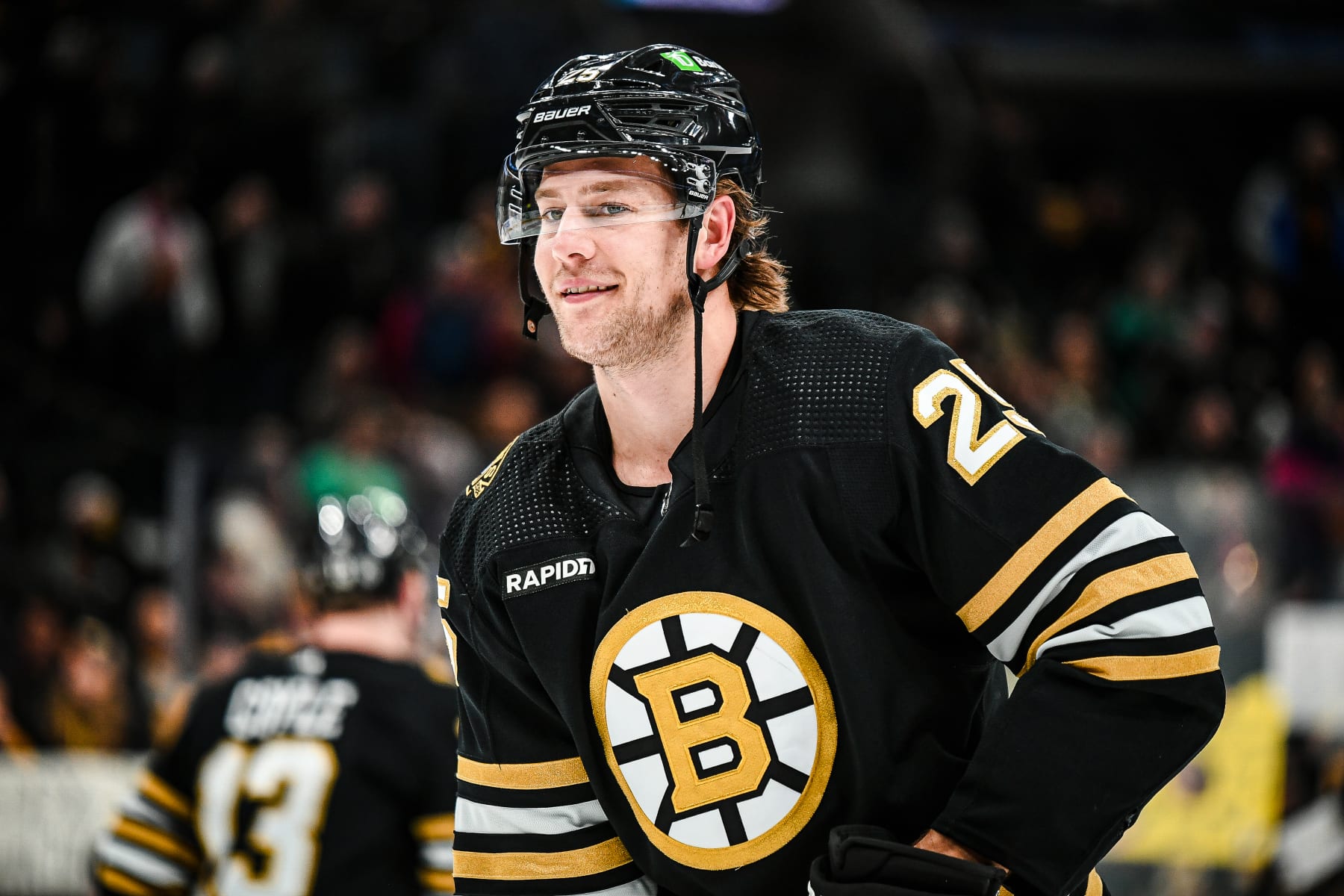
This is another tough one because the Bruins typically do a decent job managing their salary cap, and they don't have any truly bad contracts anywhere on the roster.
So, calling Brandon Carlo a "worst contract" is probably something of a stretch. But we have to pick somebody here, and he might be the closest thing there is to one simply because he is having a down year.
His overall defensive impacts have taken a bit of a hit this season with his expected goals share and expected goals against numbers being among the worst of his career, and he has never really been much of an offensive threat.
Is it a one-year blip and something the 27-year-old can bounce back from next season?
The Bruins still owe him $4.1 million per season over the next three years, and if his defensive impacts do not rebound next year, that could be a tough contract to have on the books.
Not a cap-killer by any means, but it's certainly not a bargain.
Buffalo Sabres: Jeff Skinner

At his best, Jeff Skinner has been an extremely productive goal-scorer and point producer and made the best of some bad situations.
He played in Carolina before the Hurricanes' resurgence, and he has been stuck in Buffalo during their perpetual rebuild. He has still to play in a playoff game in his career.
Despite all of that, Skinner has still scored 357 goals over 1,000 games in the NHL and had some solid individual seasons.
The problem is that he is paid like a star ($9 million per year) who can carry a franchise when he isn't that type of player at all.
Ideally, Skinner would be a strong support player at a slightly lower salary rate in a capped league.
As it stands, he is going to be 32 next season, doesn't really impact the game outside of his offense and might be starting to enter the decline portion of his career when it comes to his production.
Skinner is owed $9 million per year for another three seasons with a full no-movement clause.
Calgary Flames: Jonathan Huberdeau

When the Calgary Flames acquired Jonathan Huberdeau from the Florida Panthers in July 2022 as part of the Matthew Tkachuk blockbuster and then signed him to a massive eight-year, $84 million contract, the hope was he would continue to be one of the game's top offensive players and help lead their offense.
Instead, the contract has rapidly turned into a dumpster fire of a mess.
And it's only just beginning.
In his first two years with the Flames, the 30-year-old's offense has been a fraction of what it was in Florida (where he was one of the top point producers in the league) while still being a mostly negative impact defensively. If he doesn't score, he probably isn't helping much. And he hasn't been scoring.
Not even a head coaching change and new system has helped him rebound.
The Flames still owe him $10.5 million per year over the next seven seasons with a full no-movement clause for the next five seasons.
Carolina Hurricanes: Jesperi Kotkaniemi

The Hurricanes were one of the few teams in recent NHL history to successfully sign a restricted free agent to an offer sheet and actually end up with the player.
That was all part of the RFA rivalry between the Canadiens and Hurricanes that began with Montreal trying to sign Sebastian Aho away.
After initially signing Jesperi Kotkaniemi to a one-year deal as an RFA, the Hurricanes eventually re-signed him to an eight-year, $38.5 million contract.
To be fair, the salary-cap hit is probably decent value for the player the 23-year-old is.
Kotkaniemi doesn't score a ton, but he is a solid two-way, possession-driving player who has a place on a contender, still in his prime and has a chance to produce more.
However, the eight-year term is a little much, and Carolina still has six more years of it.
Generally speaking, if you are signing non-stars or cornerstone players to seven- and eight-year contracts, it's probably not going to work out well in the long term.
Chicago Blackhawks: Seth Jones

From the moment the Blackhawks signed Seth Jones to his eight-year, $76 million contract, it was viewed as one of the NHL's worst.
For the most part, it has been.
It is also the only truly bad contract in Chicago because it is the only really long-term deal the team has at the moment. So, the 29-year-old kind of takes this spot by default.
Jones isn't a bad player by any means and can still bring some positive value to a team if you forget how big his contract is. But that is sometimes difficult to do in a salary-capped league, especially if the Blackhawks ever have any intention of trying to move him.
Colorado Avalanche: Miles Wood

Miles Wood's contract is another deal where it isn't necessarily about the money as much as it is its length.
At $2.5 million per year, the 28-year-old is a perfectly fine player to have skating in a contending team's bottom six.
But do you really need to sign a bottom-six player for six years and give them no-trade protection for the majority of that contract?
This is also another situation where the lack of any truly bad deals makes you have to stretch to find a "worst."
Wood is a pretty consistent 12-15 goal and 25 point player every year while also bringing energy to the lineup. But long-term deals to non-stars just seem unnecessary from a team perspective.
Columbus Blue Jackets: Johnny Gaudreau

Johnny Gaudreau shocked the hockey world in July 2022 when he left the Calgary Flames and signed a seven-year contract with a non-contender like the Columbus Blue Jackets.
It was one of the wild big swings that former general manager Jarmo Kekalainen took to try to turn the Blue Jackets into a playoff team. And like most of those swings, it has ended up producing nothing close to expectations.
Gaudreau is only two years into a $68 million contract and has scored just 32 goals with only 100 points in 157 regular-season games.
For comparison's sake, the year before he signed with Columbus, he had 40 goals and 115 points in 82 games with the Flames.
Maybe Gaudreau rebounds in the coming seasons, but entering his age-31 season next year, there is a strong chance he has already played his best hockey in the league.
That's the problem with most major unrestricted free-agent signing: You get into bidding wars and pay top dollar for a player who already played his best hockey for a different team.
Dallas Stars: Tyler Seguin

Tyler Seguin spent several years as the go-to offensive force in Dallas, and he did his best to carry what was at the time a very flawed, very top-heavy team.
As he has gotten older and his production has declined a little, he has taken on more of a secondary role as Jason Robertson, Roope Hintz and Wyatt Johnston become the focal points of the offense.
That makes Seguin's $9.8 million salary-cap hit over the next few years a little much.
The 32-year-old still brings them a lot of value and offense in his new role, so it's not like he has a drain on the team, but his contract is not the best value on the team right now.
Still a good player. No longer a great contract.
Detroit Red Wings: Ben Chiarot

Red Wings general manager Steve Yzerman has been extremely busy the past couple of offseasons in trying to turn the franchise back into a playoff contender.
Some of his moves have worked out well, specifically the Alex DeBrincat trade and a few of his free-agent signings.
Others, have not.
Ben Chiarot's four-year, $19 million deal is one of the ones that has not.
The 32-year-old has always been the type of defender general managers value because of his size, physical play and willingness to block shots and play a gritty game. And there is a place for that in the NHL.
Sometimes, though, teams tend to overvalue that and pay too steep of a price for it when there is not much else to go along with it.
That tends to be the trap they fall into with Chiarot.
When he's on the ice, his teams tend to get badly outshot and outscored, and that has been the case in Detroit his first two years with the team.
The Red Wings have been outscored by a 100-141 margin during 5-on-5 play the past two years with Chiarot on the ice. It is a big problem and a problem contract.
Edmonton Oilers: Jack Campbell

Technically speaking, Jack Campbell has spent most of the 2023-24 season in the minors. And that is kind of the problem. The Oilers gave him a $25 million deal over five years to hopefully solve their longstanding problem in net.
The 32-year-old was so bad through his first 41 appearances with the team (an .886 save percentage) that he lost his job to Stuart Skinner and his spot on the roster.
There was always a risk in expecting him to be the answer in goal, especially after he was not able to do that in Toronto, but not even the harshest critics of his contract expected it to work out this poorly so far.
Campbell has trade protections within the deal, but there probably aren't many teams willing to take on that $5 million per year salary-cap number even if it was one he was willing to play for in future seasons.
Goaltending can be impossible to project long-term. The Oilers found that out the hard way here.
Florida Panthers: Aaron Ekblad

Aaron Ekblad has had moments of brilliance and impact play during his Panthers career, but there have always been a few things that have held him back from reaching the next level.
His defensive game has been inconsistent, and he has had issues staying healthy and in the lineup. Those two factors make his $7 million per year cap hit a tough pill for the Panthers to swallow, especially this season as he again missed more than 20 games and saw his offense drop to some of the lowest rates of his career.
The 28-year-old has averaged just .08 goals, 0.27 assists and 0.35 points per game this season, while also recording just 1.92 shots on goal per game. It is, on a per game basis, the worst offensive season of his career.
Ekblad still has one more year remaining on his current contract.
Los Angeles Kings: Pierre-Luc Dubois

After forcing his way out of two different teams, Pierre-Luc Dubois finally found himself on a team he wanted to commit to and signed an eight-year, $68 million contract with the Los Angeles Kings.
The hope from a Kings perspective was that the 25-year-old would be a central part of their offense and give them a two-way, power-forward presence.
However, Dubois has not delivered on that and is now a pretty big question mark moving forward.
After scoring at least 27 goals and 60 points the previous two seasons in Winnipeg, he had just 15 goals and 39 total points entering play on Tuesday night.
He was never a superstar in his previous stops with Columbus and Winnipeg, but he was a pretty consistent performer who would generate offense and drive possession. The Kings are not getting anything close to that player this season.
They will need that to change next season or that contract is going to be a big problem.
Minnesota Wild: Zach Parise and Ryan Suter

Maybe it's cheating to count two players who are currently employed by two other teams on this list, but no contracts are doing more damage to the Wild right now than Zach Parise and Ryan Suter.
Their buyouts are still eating up more than $14 million in salary-cap space, and they will do so again for one more full season next year.
That has significantly reduced the Wild's ability to spend and build a complete roster, and it's one of the biggest reasons they have taken such a huge step backward this season. It is not going to get any better next season.
They are still the third and fourth largest cap hits on the roster even though they play for Colorado (Parise) and Dallas (Suter).
The buyouts were probably necessary, but that doesn't mean the situation is good.
Montreal Canadiens: Josh Anderson

The Canadiens took a huge gamble in trading for Josh Anderson and signing him to a seven-year, $38.5 million contract coming off a season where he had a major injury and scored just one goal.
Needless to say, the gamble has not paid off.
The Canadiens are still on the hook for another three full seasons with Anderson. He has never scored more than 21 goals or 32 points in a season with the Habs and entered play on Tuesday night with just eight goals in 73 games this season.
The hope was that he would return from his injury a few years ago and become a top-line power forward who might challenge for 30 goals.
Anderson turns 30 next season and is probably not going to get any better the deeper into his 30s he gets.
Nashville Predators: Ryan McDonagh

At his peak, Ryan McDonagh was a legit top-pairing defenseman who could chip in offense and play shutdown defense for the New York Rangers and Tampa Bay Lightning.
Now that he is 34 years old, he is finding out that Father Time is undefeated and eventually comes for everybody.
That isn't to say McDonagh is totally washed-up. He is still good enough to play more than 20 minutes a night for a white-hot Predators team that has exceeded all preseason expectations and surged its way into the playoffs.
I just don't think he is still the type of player who is going to be a No. 1 defender on a contender.
Fortunately for the Predators, as long as Roman Josi is playing, they won't need McDonagh to be that. He is fine for the role he is in now, but his $6.4 million salary-cap hit for another couple of years is definitely expensive and probably not the best value on the roster.
New Jersey Devils: Ondrej Palat

The Devils have most of their core players—Jack Hughes, Nico Hischier, Timo Meier, Jesper Bratt, Dougie Hamilton—locked into long-term deals that are, for the most part, pretty team friendly.
The roster still has its flaws defensively and in goal, and injuries helped crush their chances this season, but there is a pretty good core still here in place. A bounce back should not be out of the question next season with the right moves.
One contract that has not worked out, though, has been the free-agency signing of Ondrej Palat prior to the 2022-23 season.
He is still owed $6 million per season for another three years and will turn 34 late next season. And due to injuries and ineffectiveness, he has scored just 19 goals in 116 games with the Devils.
Palat's contract also contains a no-movement clause. Signing a Stanley Cup champion and a key part of the Lightning mini-dynasty made some sense for a young, on-the-rise team, but it hasn't gone as anybody hoped or planned.
New York Islanders: Jean-Gabriel Pageau

When the Islanders initially acquired Jean-Gabriel Pageau at the 2019 trade deadline, it was a significant move by general manager Lou Lamoriello.
Pageau gave the Islanders a fantastic two-way center who could not only play a shut down role, but he could also chip in some offense. And he did exactly that in some really big spots and helped the Islanders reach back-to-back Eastern Conference Finals.
However, his contract has not aged all that well, as his play—at both ends of the ice—has dropped off over the past couple of years. The Islanders owe him $5 million per year over the next two years, and he is one of the many players over the age of 30 on a roster that has mostly been mediocre and short on impact players over the past couple of years.
The 31-year-old's offense has slipped a little, but the more concerning issue is how much his defensive game and impact has declined. That is supposed to be his main calling card.
New York Rangers: Jacob Trouba

This is a fascinating one because not only is Jacob Trouba the captain of the Rangers, but he also can be a wildly popular player among New York fans for his physical play and game-changing thunderous hits.
However, those are the limits of his effectiveness at this stage of his career.
The 30-year-old doesn't score much on his own or generate much offense, while the Rangers typically get significantly outchanced and outscored (not to mention outplayed) when he is on the ice.
For $8 million per year for another two full seasons after this one, that is a problem for a Stanley Cup contender that is already pushed to the upper limits of the salary cap and still needs to improve in some areas.
Ottawa Senators: Joonas Korpisalo

Another year, another team gets burned by making a big investment in the wrong free-agent goalie.
This time it's the Ottawa Senators with Joonas Korpisalo. And this was easy to see happening.
When the Senators signed the Finn to his five-year, $20 million contract, they did so knowing he had never been a proven long-term starter and had always been inconsistent in his production.
Playing behind a bad Senators defense not only didn't help things, but it also magnified the problems. He has an .890 save percentage in his first season with the Senators and has failed to top a .900 save percentage in five of his nine seasons in the league.
Korpisalo has four years remaining on his contract.
Philadelphia Flyers: Rasmus Ristolainen

This is one of those moves that just seemed like a bad idea at the time, and it is one of the signature mistakes of the Chuck Fletcher era in Philadelphia.
When the Flyers traded a first-round pick to Buffalo for Rasmus Ristolainen and then later signed him to a five-year, $25 million contract extension, they were moves that were criticized around the league. Especially within the hockey analytics community.
The 29-year-old had consistently rated as one of the worst defensive players in the league and did not really have the offense to help make up for it. It just seemed like a huge overpay in terms of assets going the other way and money being handed out. It was a huge overpay.
Ristolainen has not had the impact the Flyers hoped for, and he was limited to just 31 games this season while still having three more years on his contract.
Pittsburgh Penguins: Ryan Graves

Some people might argue Erik Karlsson's contract is the worst one in Pittsburgh because he is still owed $10 million per year and was a bit of a disappointment in his first year with the team.
That may be correct. But disappointing does not necessarily equal bad, and for whatever flaws Karlsson might have, he has still been a net positive for the Penguins.
The same cannot be said for their other big defense addition this offseason: Ryan Graves.
The 28-year-old has been one of the Penguins' worst defensive players and is signed longer than any other player on the roster at a salary-cap hit of more than $4 million per season. That is money that could have gone in many different directions, including building out the bottom-six depth that has hurt them at times over the past couple of seasons.
It is also difficult to ignore the fact that the Penguins' defense has dramatically improved when Graves went out of the lineup. That is also around the time they started their late-season surge for a potential playoff spot.
San Jose Sharks: Marc-Edouard Vlasic

Marc-Edouard Vlasic was a rock on the San Jose Sharks defense for more than a decade and one of the best defensive players in the league at his peak.
But as the Sharks' core started to age and slow down, the 37-year-old was not immune to that decline. It has only managed to get worse this season.
His role has been reduced to 16 minutes per game, his ability to impact the game has all but disappeared, and he is still owed $7 million per year over the next two years.
San Jose has already purged much of its veteran core as part of its rebuild, dealing Timo Meier, Brent Burns, Erik Karlsson and Tomas Hertl over the past two years.
Given his salary, as well as the fact that the Sharks have no more salary retention spots available next season, it would be difficult to move him at this point without getting a third team involved to funnel some of his money through.
Seattle Kraken: Philipp Grubauer

When the Seattle Kraken entered the NHL, they really attempted to build their roster from the net out, selecting Chris Dreidger in the expansion draft and signing Philipp Grubauer in free agency.
Neither has worked, and it is actually Joey Daccord who has solidified the position this season.
In his first three seasons with the Kraken, Grubauer has been one of the league's least productive goalies with an .893 all situations save percentage. It is by far his worst mark with any team in the NHL as he managed save percentages .910 or better with both the Washington Capitals and Colorado Avalanche.
The 32-year-old has a no-trade clause and is still owed $5.9 million per season for the next three years.
St. Louis Blues: Torey Krug

When it comes to the worst contract on the Blues, you could probably pick from any of their defenseman as Torey Krug, Colton Parayko and Justin Faulk all have nearly matching deals while also forming a defense that has been one of the league's worst in recent years.
Krug was the Blues' big free-agent addition a few years ago to help replace Alex Pietrangelo, but it has ended up being a pretty significant disappointment.
He has not matched the offensive impact he had during his time with the Bruins, and his defensive game has also struggled. As of Tuesday, he was a team-worst minus-33 on the season and there was nobody within 10 goals of him.
Yes, I am aware of the flaws with plus-minus, but when you are comparing players on the same team in the same system and with the same supporting cast, and one player is that much worse than everybody else, it's probably a bad sign.
Krug is 32 and still signed for three more years at $6.5 million per season.
Tampa Bay Lightning: Erik Cernak

It is understandable why the Lightning wanted to keep Erik Cernak. He is a really good defensive player, and the team tends to go out of its way to keep the players it likes.
The problem is his contract might be more of a luxury than a necessity on a cap-strapped team.
His $5.2 million salary-cap hit for the next seven years is a lot for what he does, and if the Lightning can't find a way to move him early this offseason, they are going to have to worry about a no-trade clause kicking in that could limit their options with him.
Tampa Bay only has $10 million in cap space this offseason with only 16 players under contract. It has to try to figure out whether it can re-sign franchise icon Steven Stamkos, while also finding ways to fill out and improve the remainder of its roster.
Cernak's contract could be a headache, and the Lightning might need to move it to help clear out some space.
Toronto Maple Leafs: John Tavares

Another one to file under the "good player, but the contract is just a little much" category.
This is not meant to be a criticism for the Maple Leafs signing John Tavares, and nor is it a statement on what he has done for the team.
The 33-year-old has been incredibly productive and a big part of their core. He has helped them win a lot of regular-season games. Emphasis on regular-season games.
Until the Maple Leafs do something in the playoffs, there are going to be criticisms of the core. And when they paid Tavares $11 million per year, they were probably expecting more than one playoff series win to this point.
It's also a situation where you might have to reach a bit to find a truly bad contract here. Auston Matthews, Mitch Marner, William Nylander and Morgan Rielly are all paid what they should be for what they do, and maybe even a little less than what they should be paid.
Tavares, on the other hand, is probably a little overpaid at this stage of his career for his production. It's not a huge problem, but it's probably the worst contract on the team right now. It has one year remaining after this season.
Vancouver Canucks: Tyler Myers
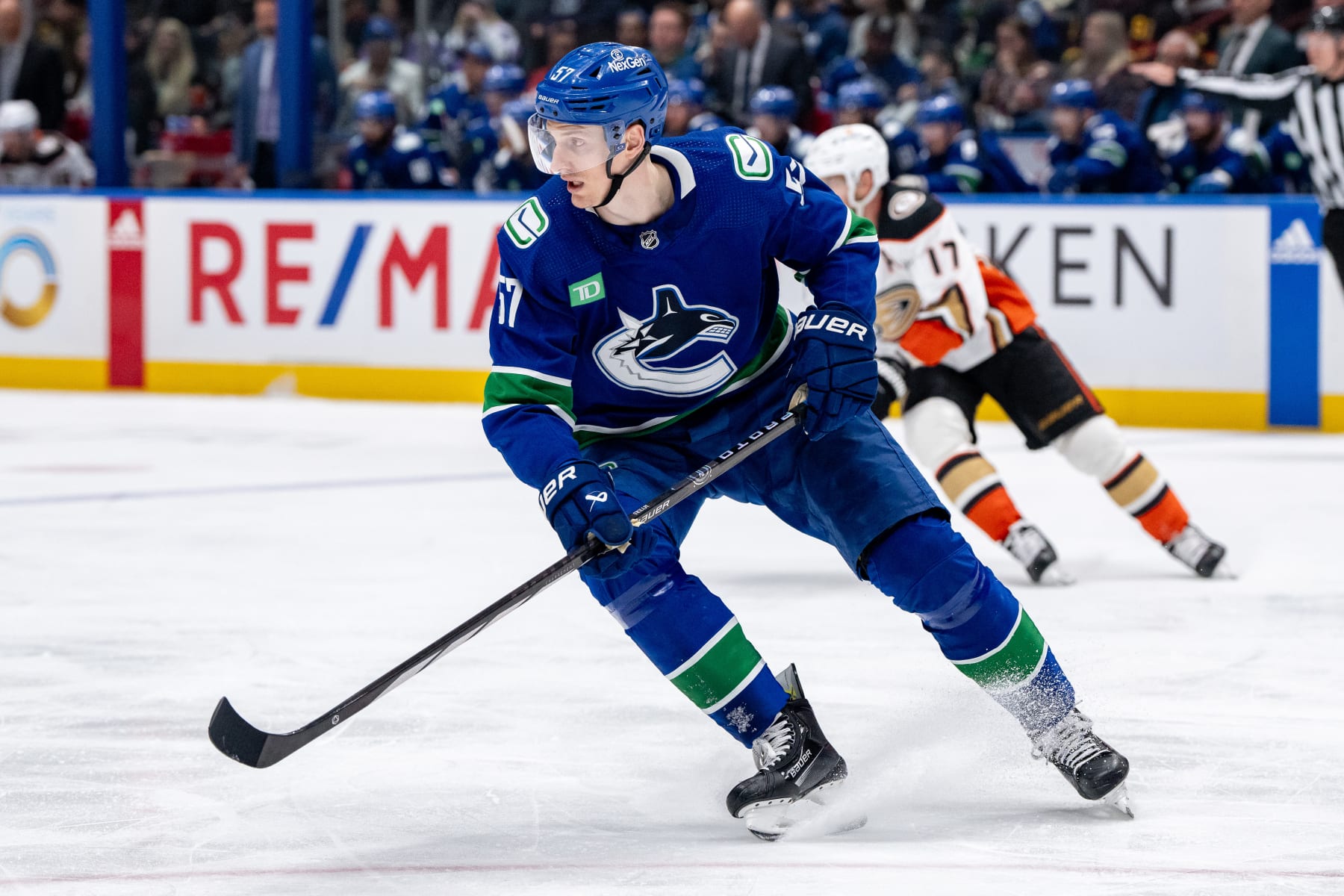
The Canucks have actually done a solid job in cleaning up what was once a messy salary-cap situation and have managed to keep a lot of their core to some cap-friendly deals.
Nobody is going to complain about what Elias Pettersson and Quinn Hughes are making, and even J.T. MIller has been incredibly productive offensively.
If you were really looking for a bad contract this season, Tyler Myers at $6 million against the cap might be one to look at it.
But even that contract isn't quite that bad because it expires after this season with his money coming off the books.
The fact that this relatively harmless deal is one of the few questionable ones is a testament to how much better the Canucks roster looks today compared to a few years ago.
Vegas Golden Knights: Alex Pietrangelo

Alex Pietrangelo was one of the many blockbuster, big-name moves the Golden Knights have made in recent years to build their Stanley Cup-contending roster.
Overall, from a big-picture perspective, the 34-year-old was worth every penny because he was a top defenseman on a team that brought the Stanley Cup to Vegas.
But it's not unfair to say he is showing some signs of slowing down this season.
The 2023-24 season has been one of his least effective in the NHL, not only from an offensive perspective, but also in terms of controlling the pace of play and helping the Golden Knights outchance their opponents.
His expected goal share of 49.9 percent is one of the lowest marks of his career, and at age 34 with an $8 million cap hit for another three seasons his contract might be a concern in the coming seasons.
Washington Capitals: Darcy Kuemper

Are you noticing a trend with free-agent goalie acquisitions appearing here? Well, you should be. Because it is a trend, and it should be a point of concern for any goaltending-needy team this offseason.
The Capitals signed Darcy Kuemper fresh off his championship season with the Colorado Avalanche in the hopes that he would be their new franchise goalie.
He actually lost his starting job this season to Charlie Lindgren and is now a $5.25 million backup.
The Capitals still have him for another three full seasons. His overall save percentage in his first two seasons with the Capitals is a very underwhelming .902, including only .890 this year.
Winnipeg Jets: Nate Schmidt

A few years ago, Nate Schmidt was a wildly popular player in the analytics community because he consistently posted great possession numbers and showed an ability to jump into the play and create some offense.
Overall, the 32-year-old still does own some strong possession numbers and helps dictate the pace of player when he is on the ice.
Even this season, his expected goal numbers and defensive impacts are fairly strong.
His offense has been a little underwhelming, though, and he only plays 16 minutes per night.
It's kind of a sheltered role for a player making $5.9 million per year through the end of next season.
B/R Recommends
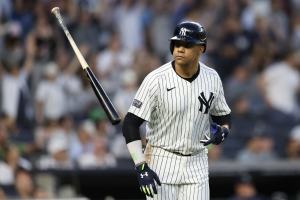
Predicting MLB Free-Agent Contracts for Top Names of the 2024-25 Class
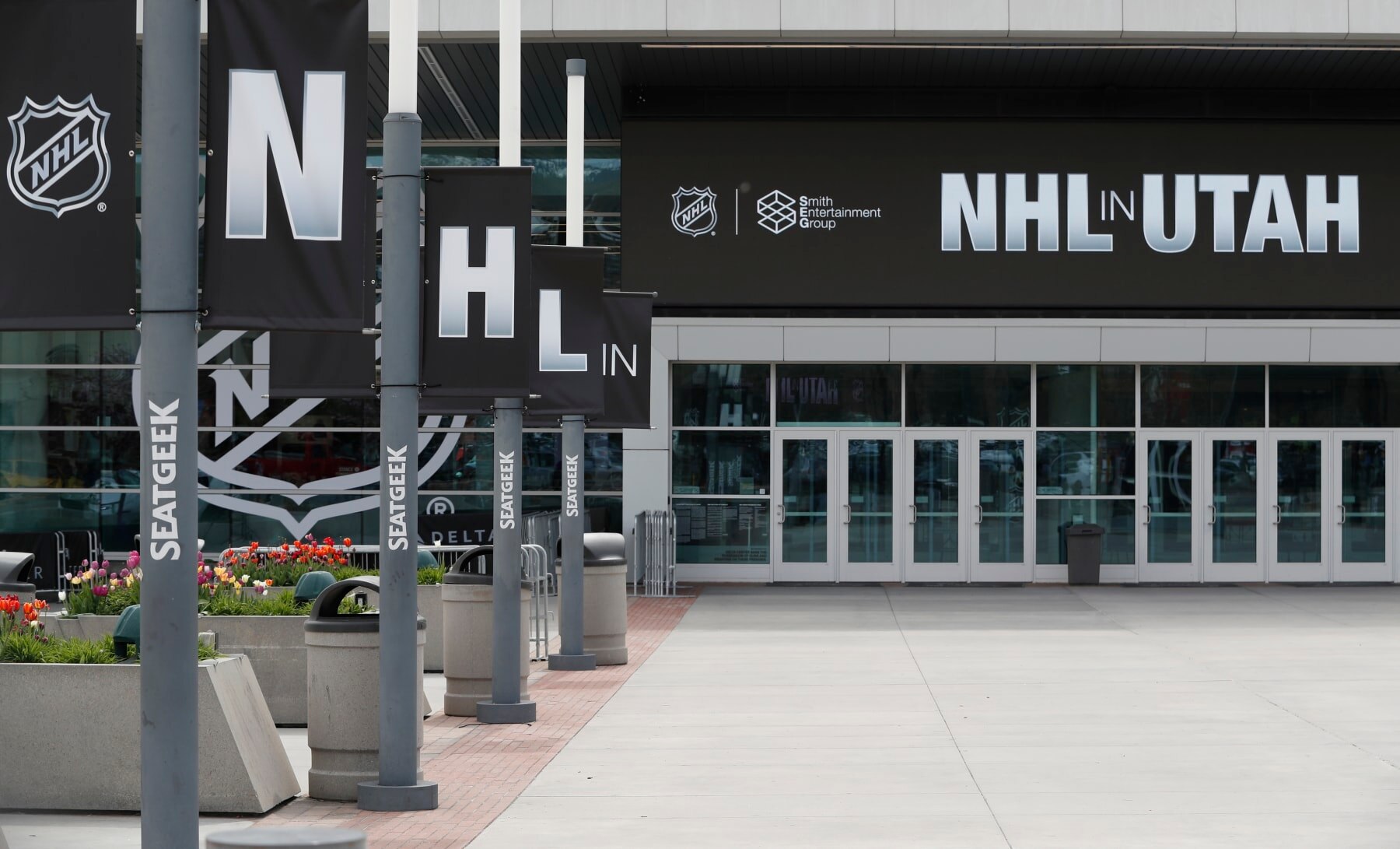
Utah Hockey Club Unveils Jerseys, Logos for 2024-25 NHL Season in Video, Photos
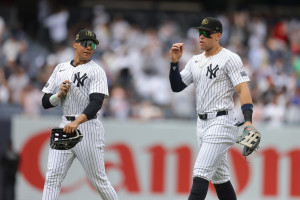
MLB Team Report Card Grades 60 Games Through 2024 Season

Projecting Every Conference's Best WR Corps in 2024 CFB Season

Reevaluating All 30 MLB Teams Based on 2024 Preseason Projections

Projecting Every Conference's Best Secondary in 2024 CFB Season
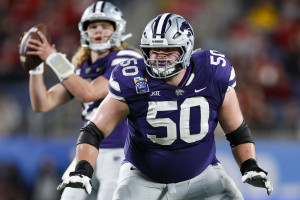
2024 NFL Draft: Every Team's Best-Value Selection
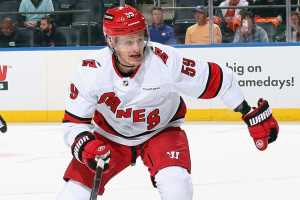
Making Sense of Jake Guentzel's Situation and 5 Landing Spots for Top NHL Free Agent
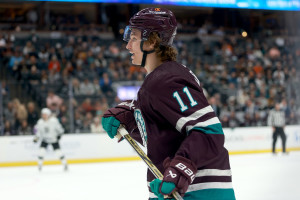
Updated Offseason Trade Landing Spots for Ducks Forward Trevor Zegras

6 Trades We Want to See Happen at the 2024 NHL Draft



